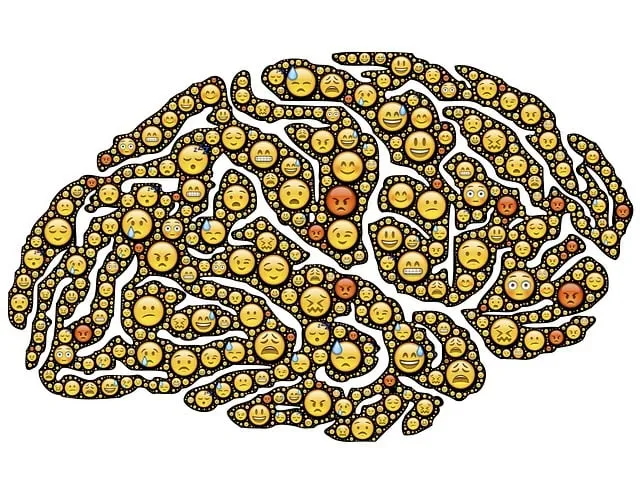Lakewood Kaiser's holistic mental health classes focus on resilience, flexibility, and mastery (RFM) using diverse techniques like mindfulness, cognitive reframing, and peer support. These exercises build adaptability, reduce stigma, and equip individuals with tools to navigate stress, adversity, and trauma. By integrating RFM into daily routines, participants gain mental fortitude for long-term emotional healing, while professionals can leverage these strategies in risk assessment and mental health policy advocacy.
Resilience is a vital tool for navigating life’s challenges, and RFM (Resilience Factor Measurement) offers a structured approach to building this strength. This article explores the concept of RFM and its potential benefits, drawing on the unique program offered by the Lakewood Kaiser Mental Health Classes. We delve into the science behind resilience-building exercises and provide practical strategies for implementing these techniques in daily life. Discover how cultivating resilience can enhance well-being, drawing inspiration from this innovative mental health initiative.
- Understanding RFM: An Overview of Resilience Factors and Measurement
- Lakewood Kaiser Mental Health Classes: A Closer Look at Their Approach
- The Role of Exercises in Building Resilience: Effective Strategies
- Implementing RFM Techniques: Tips for Personal Growth and Well-being
Understanding RFM: An Overview of Resilience Factors and Measurement

Resilience is the ability to adapt and bounce back from adversity, making it a vital component of mental health and well-being. This concept is often measured using the RFM model—a framework that identifies key factors contributing to an individual’s resilience. RFM stands for Resilience, Flexibility, and Mastery, each representing a distinct yet interconnected aspect of resilience.
At Lakewood Kaiser, our mental health classes emphasize these factors through various exercises designed to build resilience. Mental wellness is fostered by promoting flexibility in thinking and behavior, enabling individuals to navigate challenges with adaptability. The Community Outreach Program Implementation at Lakewood Kaiser leverages these principles, aiming to empower individuals to take control of their mental health and develop effective coping strategies. By understanding and measuring these resilience factors, our classes provide practical tools for enhancing mental health awareness and overall well-being.
Lakewood Kaiser Mental Health Classes: A Closer Look at Their Approach

The Lakewood Kaiser mental health classes stand out for their holistic approach to mental illness stigma reduction efforts. These classes go beyond traditional therapy by integrating various resilience building techniques tailored to enhance emotional healing processes. Participants engage in activities designed to foster coping mechanisms, promote self-care, and build a supportive community—all vital components in navigating mental health challenges.
The program’s unique selling point lies in its understanding that emotional healing processes are multifaceted. Through interactive sessions, mindfulness exercises, and peer support groups, Lakewood Kaiser equips individuals with the tools to manage stress, overcome adversity, and cultivate resilience. This comprehensive strategy not only addresses immediate concerns but also empowers individuals to thrive in a world often fraught with mental health complexities.
The Role of Exercises in Building Resilience: Effective Strategies

Exercises play a pivotal role in building resilience, offering effective strategies to strengthen individuals’ ability to cope with adversity and stress. At Lakewood Kaiser mental health classes, practitioners emphasize structured activities that foster a sense of control and adaptability. These exercises range from cognitive reframing techniques to physical mindfulness practices like meditation, which help individuals redirect their focus, reduce anxiety, and cultivate a calm mindset.
Incorporating Mental Health Policy Analysis and Advocacy into these exercises enables participants to understand systemic barriers affecting resilience-building efforts. Additionally, Trauma Support Services are integral, providing safe spaces for individuals to process past experiences and develop healthy coping mechanisms. By combining these approaches with techniques like Mindfulness Meditation, Lakewood Kaiser classes equip individuals with comprehensive tools to enhance their resilience and navigate life’s challenges more effectively.
Implementing RFM Techniques: Tips for Personal Growth and Well-being

Implementing RFM (Resilience, Flexibility, and Mastery) techniques is a powerful approach for personal growth and well-being. These strategies, often taught in mental health classes like those offered by Lakewood Kaiser, equip individuals with valuable tools to navigate life’s challenges. By fostering resilience, people can develop a stronger ability to bounce back from setbacks and adapt to changing circumstances.
Incorporating RFM into daily routines involves cultivating flexibility in thinking and behavior, allowing for easier adjustments to unforeseen situations. Additionally, mastering personal responses to stressful events enhances one’s overall mental fortitude. For mental health professionals, understanding and applying these concepts can significantly contribute to their Risk Assessment for Mental Health Professionals, while also supporting initiatives aimed at Mental Illness Stigma Reduction Efforts through educational advocacy. Engaging in RFM exercises is a proactive step towards enhancing well-being and fostering resilience in all aspects of life, aligning with the broader goals of Mental Health Policy Analysis and Advocacy.
Resilience is a powerful tool for navigating life’s challenges, and the Lakewood Kaiser Mental Health Classes have proven their effectiveness in teaching individuals how to build this strength. By combining Understanding RFM with practical exercises, these classes offer a comprehensive approach to enhancing mental well-being. Implementing RFM techniques, as demonstrated by Lakewood Kaiser, can empower folks to embrace adversity and foster personal growth. This strategy, backed by scientific research, enables individuals to develop resilience, ensuring they can thrive in today’s dynamic world.




